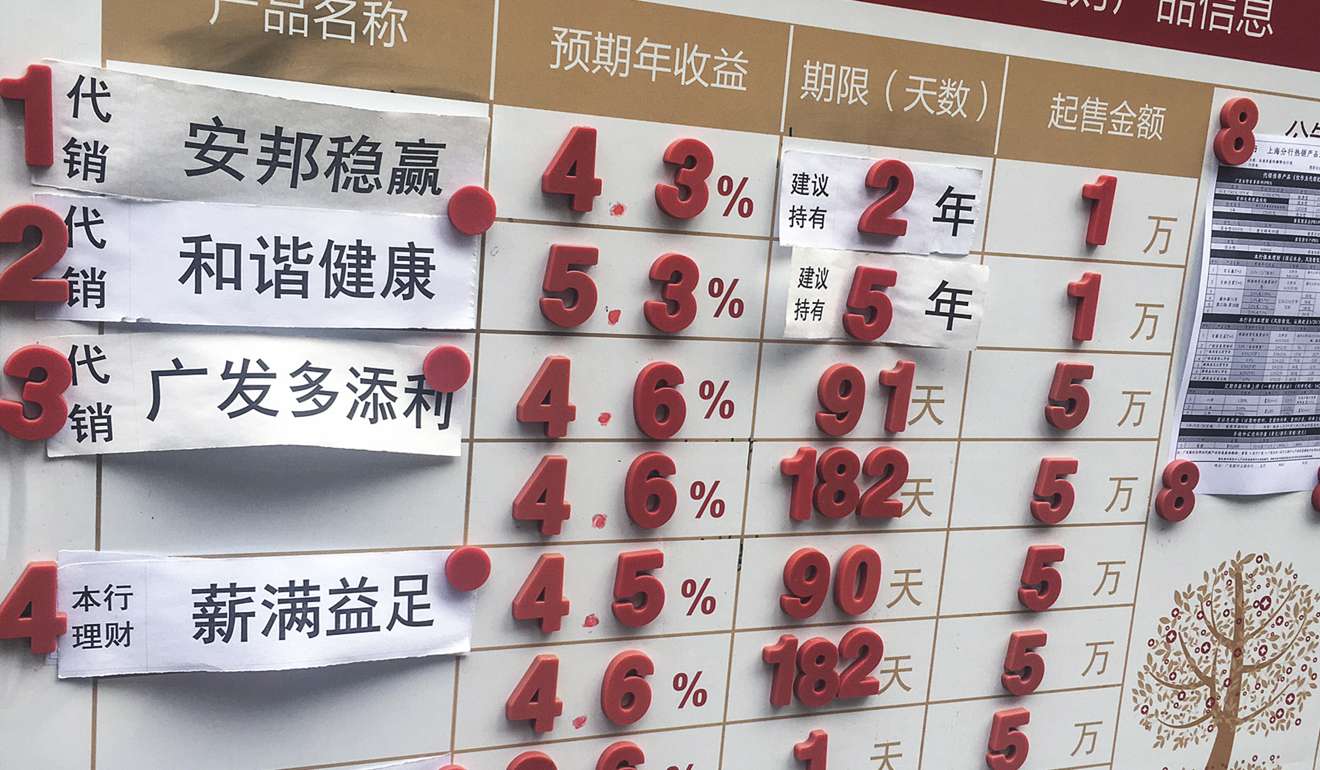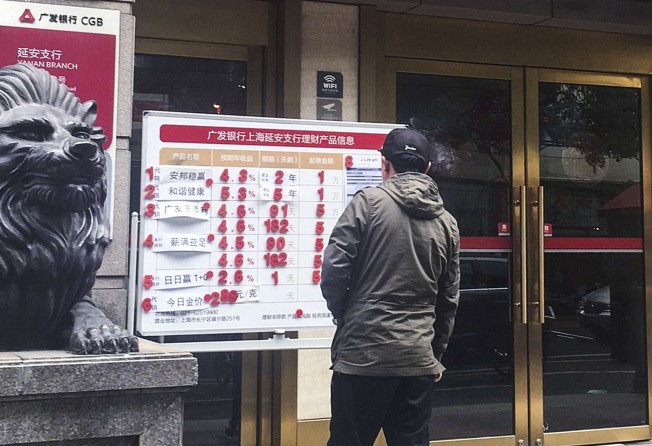
China’s retail investors grapple with a new investment challenge... the sunset of high-yield insurance products

Chinese retail investors are feeling the chill of a regulatory clampdown on universal life insurance as the high-yielding products they favour are gradually disappearing from offer.
Popular universal life products are essentially high-yield wealth management products that include a life protection component, and usually promise short-term gains with no or minimal penalties for early surrender in the first two years. The practise of selling the policies as a de facto short-term investment products are rare in other markets, analysts said.
In one example, a product from Anbang Insurance Group promises a 4.18 to 4.38 per cent return after two years and charges no fees on early surrender. For many, it works as a two-year maturity fixed-income investment. Meanwhile the one-year savings rate on cash deposits is 1.5 per cent.
“It could be the highest return on the market nowadays,” said Wendy Zhang, a customer manager at a bank offering that markets the product from Anbang Insurance. “Next time you come, you might not get hold of a product with no fees on early surrender of two years.”
She quoted previous returns of 4.7 per cent and contributed the current lower yield to a clampdown from the China Insurance Regulatory Commission, or CIRC.
Other insurance agents say returns offered by investment products are trending lower, marking a shift from those on offer in recent years.

A source at a joint stock bank in Shanghai said the bank used to sell universal life insurance valued at “several hundreds of millions yuan” in past in the city. “The heydays are over now,” he said, declining to be named as he is not authorised to talk to media.
Savers seeking out higher returns than those offered on cash deposits had been a major source of demand for insurance product with an investment component.
However the sector came under fire after some insurers were found to be using funds raised by the products to help finance takeovers in the equities market.
Regulators warned of risks in the model because it could lead to a mismatch between assets and liabilities that could spill over to a broader economy.
In December, China Securities Regulatory Commission chairman Liu Shiyu made the unusual move of calling out companies that had used unauthorised funds to finance their leveraged buyouts as “barbarians,” “robbers,” and “ghouls”.
In the first quarter of 2016, premiums of universal life insurance rose 214 per cent to 596.9 billion yuan, accounting for 38 per cent of total life premium, according to a Haitong Securities research note. The growth slowed to 74 per cent in October due to tighter scrutiny.
The CIRC has clamped down on the sales of the products since 2016. These include a cap on the scale of such products in March, and new rules in September that require higher coverage on insurance protection and a scaling back on investments.
Sun Ting, a Haitong Securities analyst wrote in a note that the era of the rapid growth of universal life insurance is over.
Jiang Li, deputy general manager of huize.com, an online insurance marketplace, said banks, one major platform for sales of investment-linked insurance, are coping with a changing picture.
“In 2017, banks are under pressure of shrinking fee-based income due to the curbs on universal life policies,” Jiang said. “They might shift focus to other large-sum insurance such as health insurance due to the policy shift.”
Insurers are expected to play up health insurance, which reflects the core mission to protect against uncertainties, in an attempt to win policy support from regulators.
In 2016, health insurance premium surged 67.7 per cent to 404.25 billion yuan, outpacing the industry’s premium growth of 27.5 per cent.
A general manager at the Shanghai branch of an insurance company said it is allocating more resources to target younger clients to sell health insurance this year as the tech-savvy generation is more open-minded in paying for long-term security.
Zhong Ming, an insurance professor at Shanghai University of Finance and Economics, said curbs on universal life insurance means more space for other products such as health insurance.
“I see slower but a more sustainable premium growth ahead, shying away from huge ups and downs due to products that essentially derail from insurance’s core,” she said. “For those pursuing universal life policy, many are not buying for insurance.”